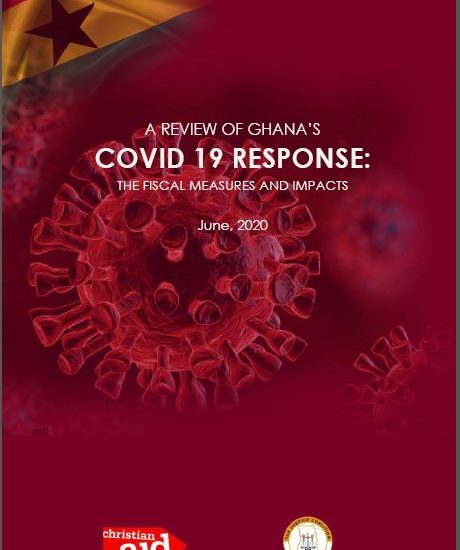- June 10, 2020
- Posted by: noye
- Category: COVID 19 Updates, Reports

Background
The COVID-19 pandemic has spread rapidly across the world and as a result, has placed all
economies globally under severe stress and caused large human suffering and loss of lives,
especially among the most vulnerable. It has also already brought a significant and
widespread economic impact on many countries. As such, the World Health Organisation
(WHO) declared the novel coronavirus a global pandemic on the 11th of March, 2020.
According to Ghana’s Minister of Finance in a statement to Parliament on March 30, 2020,
international research institutions and multilateral organisations including the IMF, the
World Bank, the UNECA, the Economic Intelligence Unit, and Fitch Solutions had projected
significant slowdown of global GDP growth which could lead to a recession or a severe
economic contraction. The Coronavirus pandemic was impacting the global economy in the
following ways:
● disruptions in global supply chains with drops in value creation and delays in
shipments of major goods and services;
● widespread supply shortages (including food, pharmaceutical, and manufactured
goods) and attendant huge price increases;
● slowdown in investments and mass lay-off of workers, further dampening economic
activity;
● unprecedented volatility and collapse of stock markets which are already recording
all-time low indices;
● tighter global financing conditions, despite interventions through monetary policy to
cut interest rates;
● decline in the international price of crude oil with significant revenue loss to oil
exporting countries;
● decline in tourism, resulting from border closures, fewer international trips,
cancellation of cruiselines, airline suspensions, and cancellation of regional and
global events;
● decline in remittances;
● significant job losses for businesses big and small;
● unanticipated increases in health spending; and
● higher public debt burden.
The Minister went further to report that many affected countries were responding to the
pandemic with a mixture of monetary and fiscal policy responses. In addition, multilateral
institutions were providing support to various countries faced with the pandemic through
rapid disbursements instruments. For example, the World Bank launched a US$12 billion
Fast Track Facility to support COVID 19 preparedness and strengthen health systems and
emergency response capacity to COVID-19 in low-income countries. This amount has
since been increased to US$14 billion. The International Monetary Fund (IMF) also
announced on 4th March 2020, a US$50 billion support to help address the coronavirus and
its accompanying challenges with US$10 billion going to low-income countries through
the Rapid Credit Facility.
Full Report Here TJC Covid 19 Report 1- Tax Perspectives_compressed (2)
